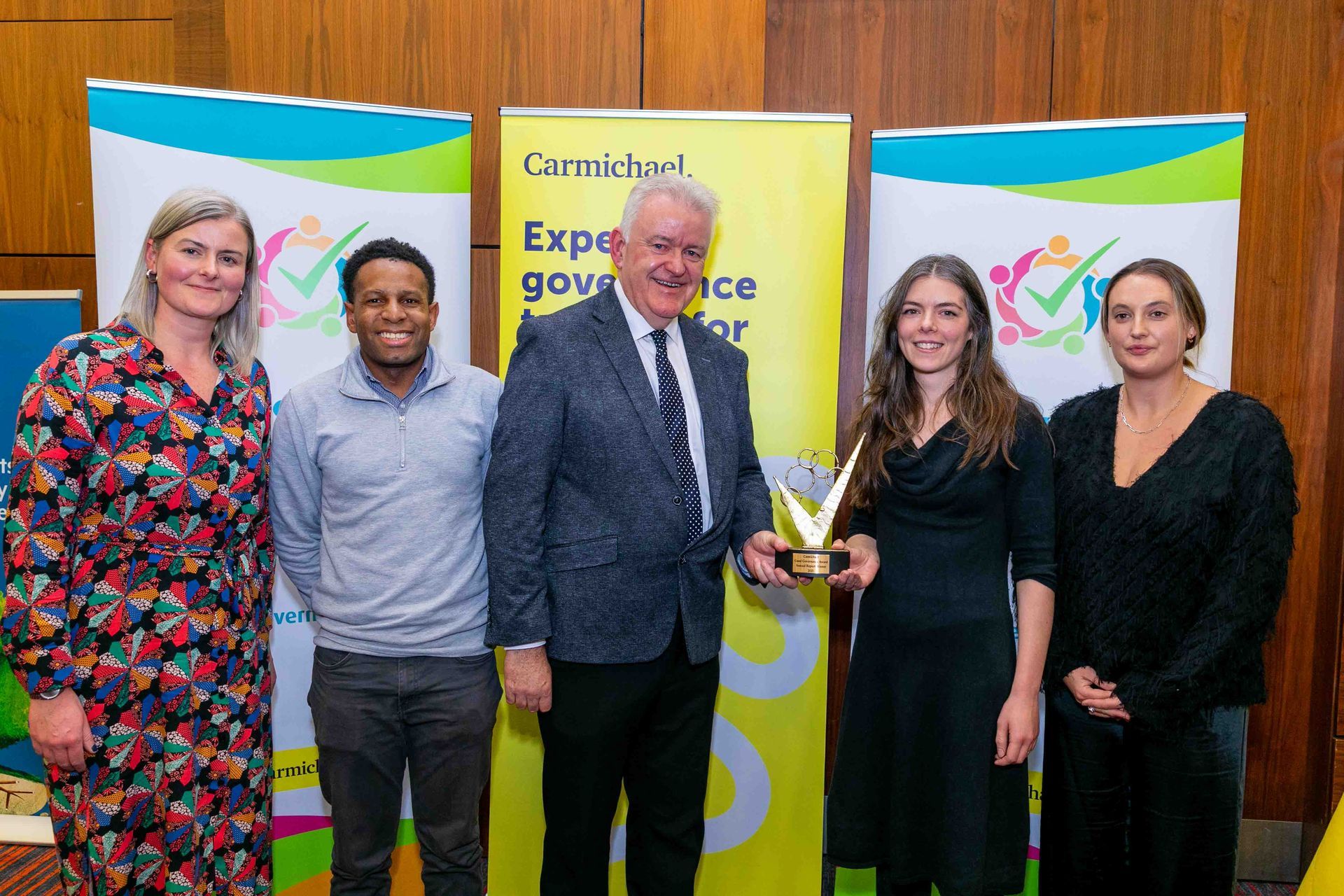Young people join forces to challenge the crisis
A group of Young Global Advocates held the Irish launch of a pan-European campaign Challenging the Crisis in Dublin today. The campaign will be rolled out across five other European countries over the coming weeks.
The campaign, which is driven by young people aged 16-30 in the so-called PIIGSS countries, is focused on practical ways to tackle the crisis, through Social and Solidarity Economy. The Young Global Advocates will raise awareness and generate support among the general public and engage with policy makers towards a European Year for Social and Solidarity Economy.
In her address to the launch Mairead McGuinness, MEP and Vice-President of the European Parliament said: “Challenging the Crisis is a unique opportunity to reshape our thinking. It is led by young people with conviction, it is working across six member states of the EU and it has the potential to motivate and challenge us to see global inequality as our problem too and our duty to address.”
Lynn Boylan, MEP, who spoke at the event said: 'It is fantastic to see young people in Ireland proactively engaging with their international peers on issues such as the impact of austerity while creating a cross-border platform of solidarity to work from. I was delighted to attend today's event to give an insight of the work I am doing in the European Parliament on youth matters and would like to commend them on their campaign to launch a European Year of Social and Solidarity Economy.'
The campaign is part of an EU funded three-year development education project led by the Irish Development Education Association (IDEA) with partners in Portugal, Italy, Greece, Spain and Slovenia. The aim of the project is to build critical awareness among young adults, enabling them to see the European financial crisis in a global, interdependent context.
Frank Geary, Director of IDEA, said: “We are privileged to have the opportunity to work with such an enthusiastic, committed and creative group of young people. This campaign highlights what development education is truly about, through its strong focus on global justice and its search for answers as well as causes of injustice, poverty and inequality through experiential learning. The Challenging the Crisis campaign is a platform for young people to take the lead in the solutions and the practical steps we need to promote global justice for all.”
A bout the Campaign
Challenging the Crisis is a Development Education project aimed at engaging young people aged 16 – 30 in Greece, Ireland, Italy, Portugal, Spain and Slovenia in campaigning for social justice and international development in the context of austerity at home.
IDEA is the lead partner in the project, working with partners in 5 other European countries: Fair Trade Hellas (Greece), CIPSI (Italy), Fondazione Culturale Responsabilità Etica (Italy), IMVF (Portugal), SLOGA (Slovenia) Fundación Economistas sin Fronteras (Spain).
The young people that are involved in this project are known as Young Global Advocates (YGAs). Through Development Education the YGAs are encouraged to think of ideas to tackle inequality at home and abroad – a reframing of development. Through a project based on the core principles of development education, the YGAS wish to campaign for a truly transformative solution. Social and Solidarity Economy challenges the current socio-economic power structures, which they have witnessed as the root causes of poverty in their own societies and across the world.
About Social and Solidarity Economy
Social and Solidarity Economy has many diverse meanings, however the ultimate aim of Social and Solidarity Economy is to satisfy the needs of individuals and communities across the world.
Social and Solidarity Economy (SSE) includes traditional forms of cooperatives and mutual associations, fair trade organizations, associations of informal sector workers, social enterprises, and community currency and alternative finance schemes – such as micro finance groups or credit unions.
The concept is globally applicable. It is as useful in Europe as it is in the Global South. In simple terms it puts people at the centre of the economy.
It is based on the following core values:
● Democracy
● Solidarity
● Inclusiveness
● Diversity
● Sustainable Development
● Equality, equity and justice for all









